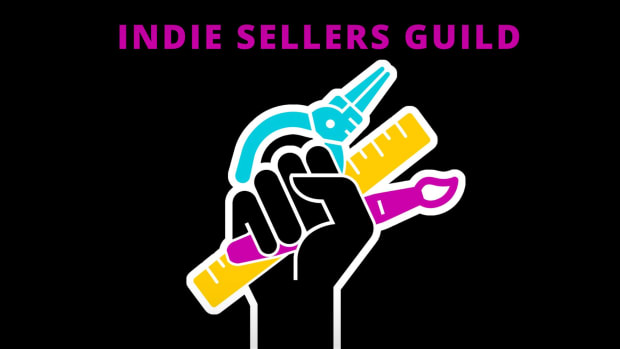For years, Etsy (ETSY) has been the most well-known name when it comes to buying creator-owned products, crafts, and goods online. Lovers and makers of hand-crafted goods have flocked to the site, which currently hosts more than 7.5 million shops worldwide. Etsy has become the most prolific site for independently-made goods -- a fact which the company, according to many users, has been known to exploit.
In early spring of this year, Etsy enacted a 30% price hike in the fees it collects in exchange for hosting shops. Etsy CEO Josh Silverman said the hike is meant to create more funds to be used to boost marketing, grow its support team, and bolster safety protocols in 2022. But shop owners aren't convinced that the price hike is, as Silverman suggests, for the overall benefit of sellers.
In the last few years, Etsy has implemented some questionable policies with regards to shop owners' revenue. In 2019, the site encouraged sellers to offer free shipping, presumably to compete with mega-shipping programs like Amazon (AMZN) Prime. When sellers pushed back on the idea, Etsy representatives told shop owners to simply include shipping in their regular pricing, making it even more difficult for sellers to price competitively.
Later, in February 2020, Etsy also offered to advertise sellers' goods for them on major websites like Google and Facebook. But the fine print of this deal turned out not to help individual sellers very much. After all, in exchange for this advertising, Etsy would take a minimum fee of 12% off the full order total, including shipping. All sellers were automatically opted into the program -- but only shops that made less than $10,000 in profit annually were allowed to opt out.
In April, several of the site's users got together to organize a strike. The organization's intention, according to seller and organization leader Kristi Cassidy, is to prevent the site from forcing consumers and shop owners to pay higher prices for the service. Cassidy told TheStreet that "most Etsy sellers agree that the platform has gotten worse over time. Seller fees continue to rise, while the services and support we get diminishes. This fee increase would be just another cost that gets displaced onto our customers shoulders."

Indie Sellers Guild
Introducing Etsy Alternative the Indie Sellers Guild
Since the spring movement to strike, Cassidy and her fellow Etsy sellers have been very busy. Kristi, along with several other volunteers who use the site, have put together their own sort of community that they believe will help to unify sellers and demonstrate their power to the company once and for all.
This Labor Day, the site officially launched its directory and opened membership for Etsy sellers worldwide.
"We are the Indie Sellers Guild. We are a grassroots nonprofit, by indie sellers, for indie sellers. Our hard work makes Big Tech rich! We deserve a seat at the table, and we’re fighting to get one," the new venture shared on its website.
The Guild will function a bit differently than a union, according to the site's FAQ page. Why is that? Etsy sellers and other independent creators are, by U.S. definition, gig workers. Members of the Guild and other Etsy shop owners aren't considered employees of the giant craft site, so they don't meet the qualifications to form a legal union.
What the Seller's Guild Offers
Union status or not, the Indie Sellers Guild wants to eliminate Etsy's rampant reseller problem. Shoppers and sellers alike have noticed a virtually-uncontrolled number of counterfeiters selling handmade items at lower cost and quality. A problem that they believe Etsy has made little to no effort to stomp out.
But with ISG's membership directory, members will get “access to a worldwide community of online sellers” that are the real deal -- completely free of charge. Each membership is verified by a real person, making it much more difficult for resellers to gain entry. The site also includes helpful tips on making the most of your sales platforms, and educational presentations on taxes, shipping, fees, and other financial aspects of being an online seller. The site's blog already hosts tips for using other avenues of sales and payment like Square (SQ), Shopify (SHOP), and more.
Sellers will be allowed to vote on the organization's policies. But the biggest value could perhaps come from a sense of community support not offered by Etsy's admins and site structure. The organization offers a Discord server that will allow sellers to communicate and support one another. Members of the Guild will get a listing in the directory and consumers who want to directly support creatives and shop owners will be able to browse a directory of indie shops or search by shop name, categories, and keywords.
During the Guild's livestream launch event on Twitch and Meta's (META) Instagram Live, the organization's interim Board of Directors teased the future involvement of partnerships with watchdog organizations and resources to help protect sellers and promote their work in a way that recognizes and respects creators' needs.
So what's next for the Guild? According to panel members at the launch event, the board would love to see more diverse representation as they move forward and choose more permanent members. As membership numbers grow, the Board hopes that more sellers from diverse backgrounds will have the privilege to commit to the volunteer positions that keep the Guild running.







